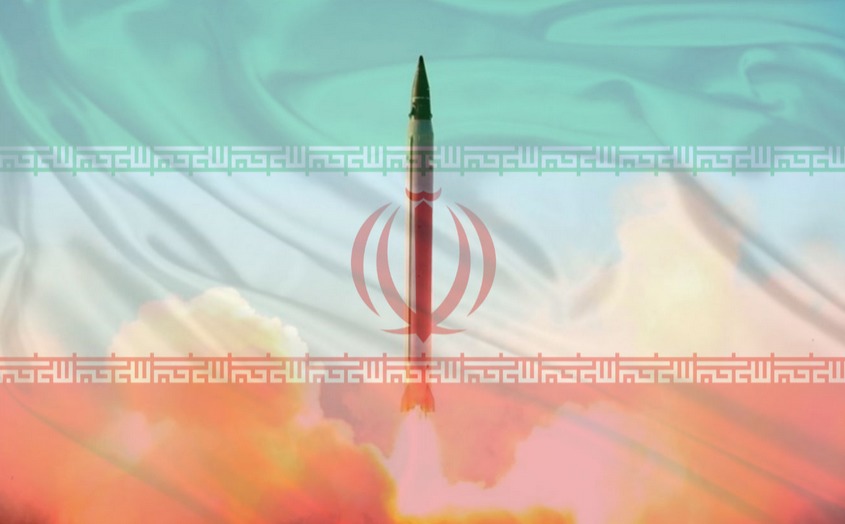WeChat and TikTok Ban - Amir Handjani Saudi Arabia

The Trump administration is moving ahead with its ban on the popular Chinese apps WeChat and TikTok. This is a significant step in what has become a growing consensus in Washington that the two largest economies in the world need to create a different framework for their relationship to continue on equal footing.
There is some merit to confronting China on a whole host of economic issues, such as forced technology transfers, theft of intellectual property, and subsidies to national champions like Huawei that give an unfair advantage to Chinese companies over their American and European counterparts.
But banning TikTok and WeChat does little to advance any of Washington’s long-term strategic objectives and amounts to nothing more than playing whack-a-mole with two widely popular apps that could force China to take retaliatory actions that negatively affect American consumers and companies.
WeChat is much more than a social media platform for China — messaging is just one aspect of what it does. It is used to book flights and hotels, facilitate payments, and it acts as a gaming platform. It is PayPal, WhatsApp, Amazon, Expedia, and PlayStation rolled into one portal and averages 1.2 billion monthly users. American businesses in China such as Starbucks, McDonalds, and Nike depend heavily on its payment platform to conduct their China-related business.
The app works differently in the United States and is mostly used by Chinese Americans and Chinese citizens who live, study, and work here. The Trump administration is right to be concerned about how China censors the content that is disseminated on the app. WeChat’s parent company, Tencent, is close to the Chinese Communist Party, and, as with Huawei, there is always a fear that Chinese regulators could force the transfer of personal information of the app’s users.
But banning the app does little to resolve any of those concerns. Rather, it is a giant leap toward a tech cold war that would bifurcate the world between U.S. and Chinese tech powerhouses. It gives China a powerful incentive to block or ban American companies from doing business in China.
Take Apple, the world’s largest company by market capitalization — more people buy Apple smartphones in China than in the United States, and most of Apple’s assembly plants are based in China. What would happen if WeChat decided to stop allowing its app to be downloaded on Apple’s operating system? A phone in China without WeChat is worthless, and Apple’s customer base there would evaporate overnight as Chinese customers flock to alternatives. This would have a dramatic effect on Apple’s bottom line.
China has foreshadowed a bit of what it could do when the Trump administration demanded that China’s ByteDance, the parent company of the popular app TikTok — which has over 100 million U.S. users — to sell its U.S. operations. Beijing’s regulatory watchdog ruled that TikTok’s valuable algorithm could not be a part of any sale. Without that algorithm, it is unclear that an actual sale of TikTok would be of any value. It is the code within the algorithm that uses advanced machine learning (AI) to direct content with which it believes the user is most likely to interact with. The Trump administration has signaled over the weekend that it will approve a deal that will spin TikTok off from ByteDance into an American company, but it’s still unclear if China will approve the deal.
Is it really going to be Washington’s policy that every time China produces an innovative tech company, the U.S. president will ban it? What will that do for technological innovation which has always benefited from global collaboration? As China’s tech sector becomes increasingly advanced and sophisticated, will we erect our own version of a “a great fire wall” and deny their apps to U.S. users?
A better strategy would be to develop coherent criteria for determining what information U.S. and international tech firms can collect from users and how and under what circumstances that information can be shared. The U.S. can work with like-minded allies such as the European Union, Japan, and South Korea — whose technology architecture is intertwined with it — to come up with universal principles and then demanding all companies that seek access to U.S. tech platforms adhere to that standard. Such a policy would be far more equitable, and beneficial to both American and Chinese companies and users than going through the pain of decoupling which will only accelerate a tech cold war.
Articles from Amir Handjani
View blog
Iran’s deadly wave of protests has taken the government and security forces by surprise. · What star ...

President Donald Trump’s attempt to bring peace and stability to the Middle East has backfired spect ...

Last month Iran test fired a new ballistic missile. The Trump administration formally put Iran on “n ...
You may be interested in these jobs
-

Backend Engineer
Found in: beBee S2 US - 1 week ago
QData Stanford, United States contractCore Technical Skills Core must - PHP React Js Angular CSS (Core java can be alternate to PHP) - MUST HAVE Good to have – web technologies - Redux Relay and React Router GraphQL - MUST HAVE Backend – SQL (Relational Database and No-SQL) – MUST HAVE Comfortable with ORM HIVE ETL P ...
-

Sr Financial Analyst
Found in: Talent US C2 - 1 hour ago
PMA Companies Blue Bell, United States Full time - RegularJob Description: · Analyze and control premium and commission monthly by source, program, company and line of business. · Calculate ceded reinsurance premium and commissions and prepare quarterly trend analyses. · Monitor cash collections and make quarterly settlements between P ...
-
Assistant Store Manager
Found in: Appcast Linkedin GBL C2 - 1 week ago
David Yurman Miami, United StatesOverview · The Assistant Store Manager is responsible for ensuring that store achieves or exceeds sales plan and profitability goals, as well as enhance the David Yurman brand within the store and local market. This individual will also partner with store management team in overs ...

Comments